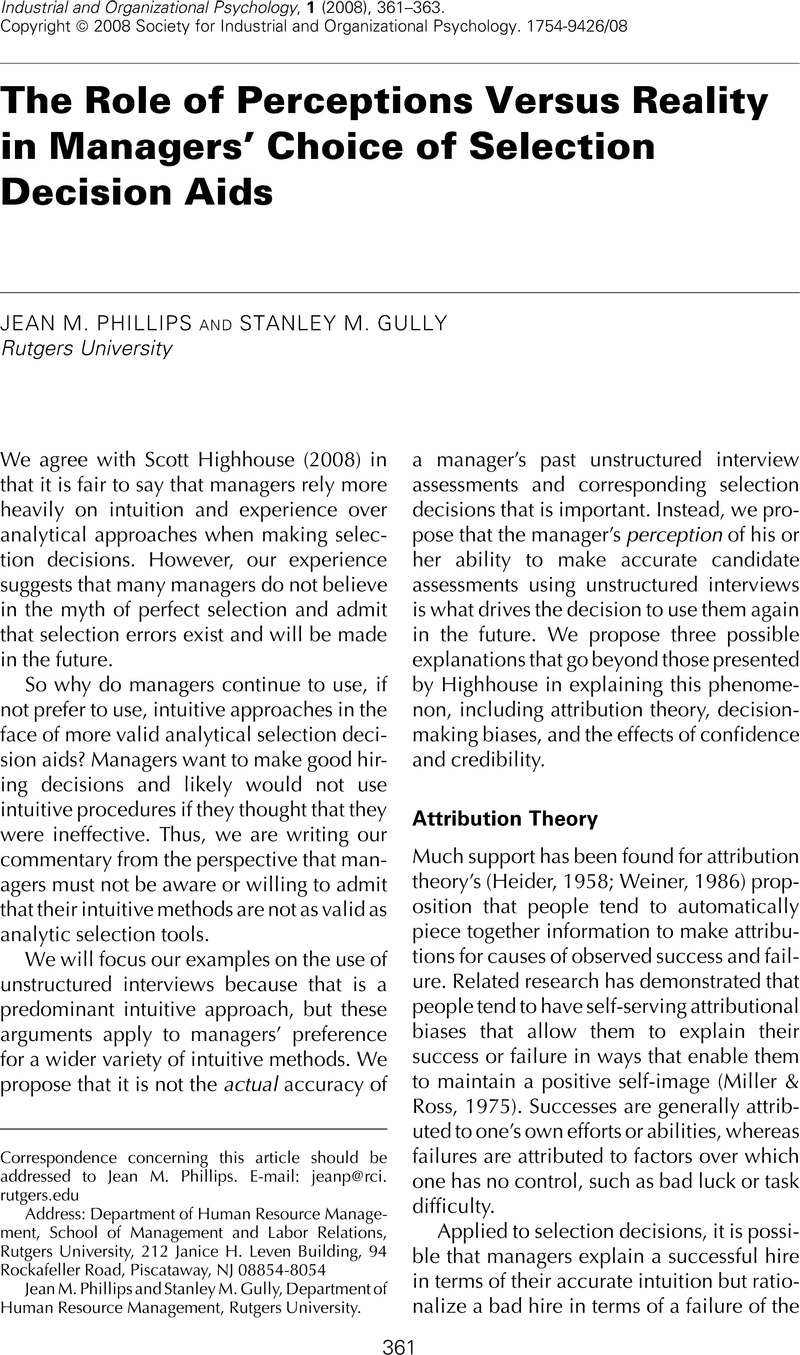Crossref Citations
This article has been cited by the following publications. This list is generated based on data provided by Crossref.
Highhouse, Scott
2008.
Facts Are Stubborn Things.
Industrial and Organizational Psychology,
Vol. 1,
Issue. 3,
p.
373.
Diab, Dalia L.
Pui, Shuang-Yueh
Yankelevich, Maya
and
Highhouse, Scott
2011.
Lay Perceptions of Selection Decision Aids in US and Non-US Samples.
International Journal of Selection and Assessment,
Vol. 19,
Issue. 2,
p.
209.
Lodato, Michael A.
Highhouse, Scott
and
Brooks, Margaret E.
2011.
Predicting professional preferences for intuition‐based hiring.
Journal of Managerial Psychology,
Vol. 26,
Issue. 5,
p.
352.
Klehe, Ute-Christine
2011.
Scientific Principles Versus Practical Realities: Insights From Organizational Theory to Individual Psychological Assessment.
Industrial and Organizational Psychology,
Vol. 4,
Issue. 3,
p.
311.
Burton, Jason W.
Stein, Mari‐Klara
and
Jensen, Tina Blegind
2020.
A systematic review of algorithm aversion in augmented decision making.
Journal of Behavioral Decision Making,
Vol. 33,
Issue. 2,
p.
220.
Neumann, Marvin
Niessen, A. Susan M.
and
Meijer, Rob R.
2021.
Implementing evidence-based assessment and selection in organizations: A review and an agenda for future research.
Organizational Psychology Review,
Vol. 11,
Issue. 3,
p.
205.
Chacon, Alvaro
and
Kaufmann, Esther
2024.
An overview of the effects of algorithm use on judgmental biases affecting forecasting.
International Journal of Forecasting,



